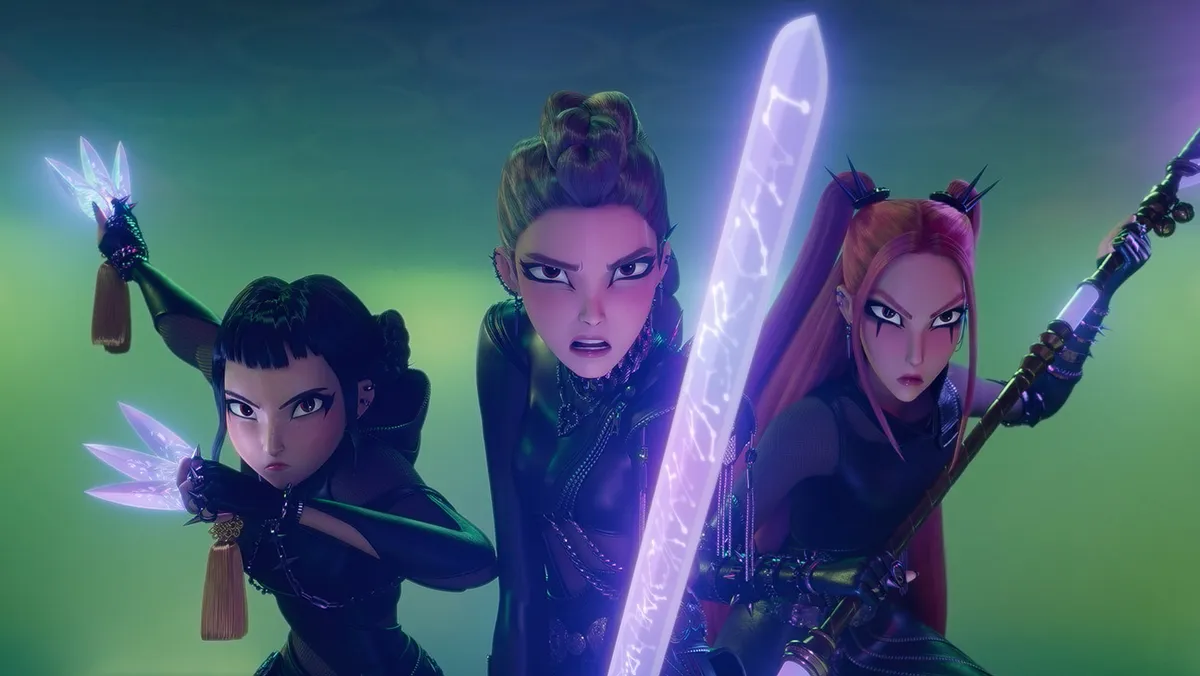
In a recent discussion at a Bank of America conference, Sony Pictures CEO Ravi Ahuja addressed the decision to sell the animated musical KPop Demon Hunters to Netflix. Ahuja emphasized that while the sale was the right move for the studio at the time, he acknowledged the potential for the film to have flourished as a theatrical franchise for Sony if circumstances had been different.
During the conference, analyst Jessica Reif Ehrlich posed a thought-provoking question regarding whether KPop Demon Hunters could have succeeded as a theatrical release. Ahuja candidly replied, “This is the question we ask ourselves, everyone is asking us too. You know, I don’t know. Obviously, in hindsight, it is such a big hit you think maybe it could’ve.” He acknowledged that the film’s unique timing during the pandemic and its specific K-pop theme played a significant role in its eventual success.
Ahuja explained that Netflix not only covered the entire production cost but also provided a profit premium, which made the deal appealing for Sony at that time. “At the time it made sense, but in hindsight you think maybe it could’ve been theatrical, and in fact, Netflix took it to theaters.” His insights reflect the complex nature of film distribution decisions in an evolving entertainment landscape.
Indeed, KPop Demon Hunters has emerged as Netflix’s biggest movie to date. In an innovative move, Netflix even released a singalong version of the film in theaters for one weekend, generating nearly $20 million at the box office, despite not being screened in any AMC theaters. Ahuja noted, however, that it is difficult to determine if Sony would have achieved the same success with a theatrical release. “It started out on Netflix, and word of mouth made it grow. In theatrical, that is a lot harder to do,” he stated, highlighting the challenges of making a cultural impact quickly in a theatrical setting.
Looking ahead, Ahuja expressed optimism for the future of the box office, citing upcoming releases like Spider-Man and Jumanji. He noted, however, that breaking through in the current market remains challenging. “The theatrical bar, what is the bar you have to get over to make it theatrical … and I think for superhero movies the bar was relatively low,” he explained. “Pretty much all of them would do incredible business, but now even superhero movies have to have originality, something different, an emotional connection.”
He emphasized the importance of making films that resonate with audiences, stating, “Things have to be cultural events; they have to be really appealing to some audience.” This shift in focus reflects a broader trend in the film industry, where audiences are increasingly drawn to stories that offer depth and connection.
Under Ahuja’s leadership, Sony Pictures is aiming for “consistent, stable growth over time” while also exploring new opportunities in the entertainment sector. One area of focus is experiential entertainment, particularly through partnerships with venues like Alamo Drafthouse, which Ahuja noted is still “relatively under-penetrated in big cities.”
Ahuja clarified that while he doesn’t aspire to dominate theatrical distribution, he aims to leverage this team to enhance direct consumer connections. He is also contemplating the impact of digital media on the industry. “No media company has quite figured out how to work with the so-called creator economy, but we spend time on that, and hopefully, we find a path there,” he concluded.